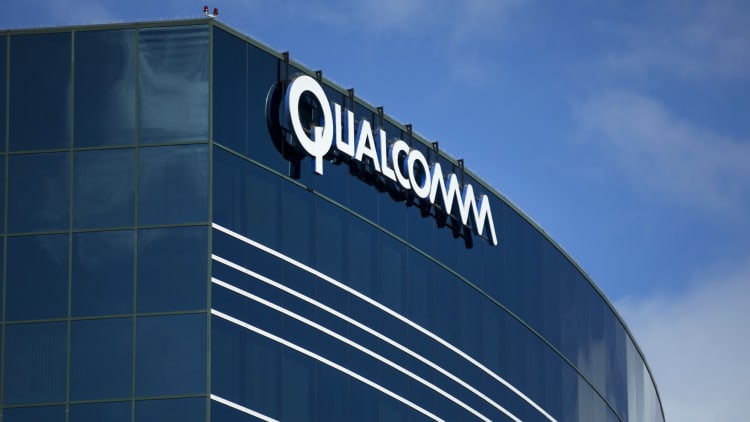
The U.S. government has outlined key concerns about Broadcom's proposed merger with Qualcomm, including national security and a risk that Qualcomm could lose ground to China in developing 5G wireless network technology.
"Qualcomm has become well-known to, and trusted by, the U.S. government," the Treasury Department wrote to lawyers involved in the deal on Monday. "Having a well-known and trusted company hold the dominant role that Qualcomm does in the U.S. telecommunications infrastructure provides significant confidence in the integrity of such infrastructure as it relates to national security."
The Committee on Foreign Investment in the United States has been reviewing the proposed merger by Broadcom. On Sunday it asked Qualcomm to delay its shareholder meeting, which was to have been held Tuesday.
The Treasury's letter cited Chinese chipmaker Huawei as a competitive threat in the development of 5G. "China would likely compete robustly to fill any void left by Qualcomm as a result of this hostile takeover."
The deal would load up $106 billion of debt, the largest corporate acquisition loan on record, the letter says. That could increase pressure on short-term results that could force the company to cut back on longer-term research and development funding.
A shift by Chinese companies to dominate 5G "would have substantial negative national security consequences for the United States," the Treasury said.
Broadcom has been fighting to preserve its deal, however. On Tuesday the company released a statement in response to the Treasury's letter, saying it is cooperating with the review and is committed to remaining a global leader in 5G.
"There can be no question that an American Broadcom-Qualcomm combination will provide far more resources for investments and development to that end," the statement said. "Entrusting this effort to a failing Qualcomm management who lacks the support of its owners, and that pays out much of its excess cash flow in fines as a result of serial lawbreaking, would not be in America's long-term interests."


